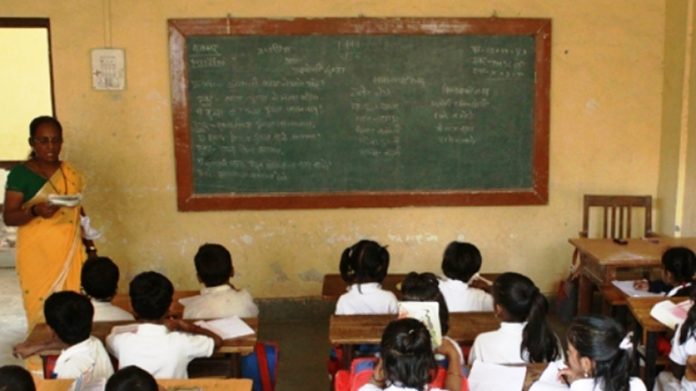By Mirza Mosaraf Hossain, TwoCircles.net
The ICSE, ISC, CBSE, Hindi and other medium schools in West Bengal are likely to introduce Bengali as a compulsory language subject in their academic curriculum from class 1 after a recent announcement by the state government. Following Kerala, Bengal is the second state to make a state language mandatory after the Centre’s decision to introduce Hindi as a compulsory language in national schools.
This has created fuss among students and parents, who are seeing at as an extra burden for people whose mother tongue is not Bengali. It is important to point out that students have the freedom to take choose their first, second and third language among English , Hindi, Urdu, Nepali, Gurumuki ,Olchikhi etc.
Making the announcement, state education minister Partha Chatterjee was quoted in the Hindu as saying, “From now on, it will be compulsory for students to learn Bengali in schools. English medium schools will have to make Bengali an optional subject from Class I so that the students can study it either as a second or third language.”
Conventionally, students from boards other than WBBSE or West Bengal-approved boards used to learn Bengali for three years. Some boards offered Bengali for three years starting from class six to eight, while others offered Bengali as a second or third language from class two to six.
This new declaration is heart fully welcomed by the Bengali speaking, even many non-Bengali citizens. Dr. Saifulla, the associate professor of Bengali, Aliah University, said, “The decision is an effective step by the government if we are responsible towards our nationality, especially at a time when Bengalis feel pride in not being able to read or write Bengali.”
Farah Anwar, a school teacher of Shibpur Muslim’s Girls’ High School and also an Urdu speaker, said,“It is a privilege to all non-Bengali students to learn Bengali to communicate with them as they are living here”.Some students of Urdu speaking background also praised the initiative. “The decision is a good one. It will help Urdu-speaking children learn the language of the state in which they are living”, said Farah Wasi, a resident of Ripon Street.
However, Professor Amrit Sen of Viswa Bharati University, department of English, has another take on this decision. “Merely imposing an extra language to young non-Bengali students means widening their burden. Can the government ensure that the faculty, facilities would be enough to provide a quality teaching to a third language class?”He added, “Love for nation or one’s own ethnicity comes from within, not by imposing it and any attempt to promote this strategy is to sink them in utter stress”.
Naurina Shamsi, who resides in Mallick bazaar, Park Circus, and an Urdu speaker, opined, “Though the decision is good for communicating with people with whom we are living, at the same time it is likely to increase the expenditure of guardians, especially for economically less privileged families.”
People have also pointed out the issues regarding practical implementation of such an order. Heba Ahmed, a student at Jawahar Lal University, Delhi, said, “Most of the Urdu textbooks that are used for different subjects are terribly written and insufficient for any clarity of understanding. And so, teachers using these textbooks are unable to prepare students for competitive college entrances after school. Secondly, when it comes to teaching even second language English, the Sarva Shiksha Abhiyan has been a terrible failure in schools like that. Teaching a language should ensure a student’s skill development in that language. But this is far from the case. How will the SSA implement teaching a third language Bengali? Besides, the girls in such ( Shibpur Muslim Girls’ High School, Howrah) schools are burdened with broken families, housework, even making a living for themselves from a very young age. They are hard-pressed for time even for the already existing subjects. Imposing a third language on them from classes 1 to 10 is going to be a terrible burden. Does any of this occur to education policy makers? Or are they simply engaged in battling it out with rival linguistic nationalisms?”

